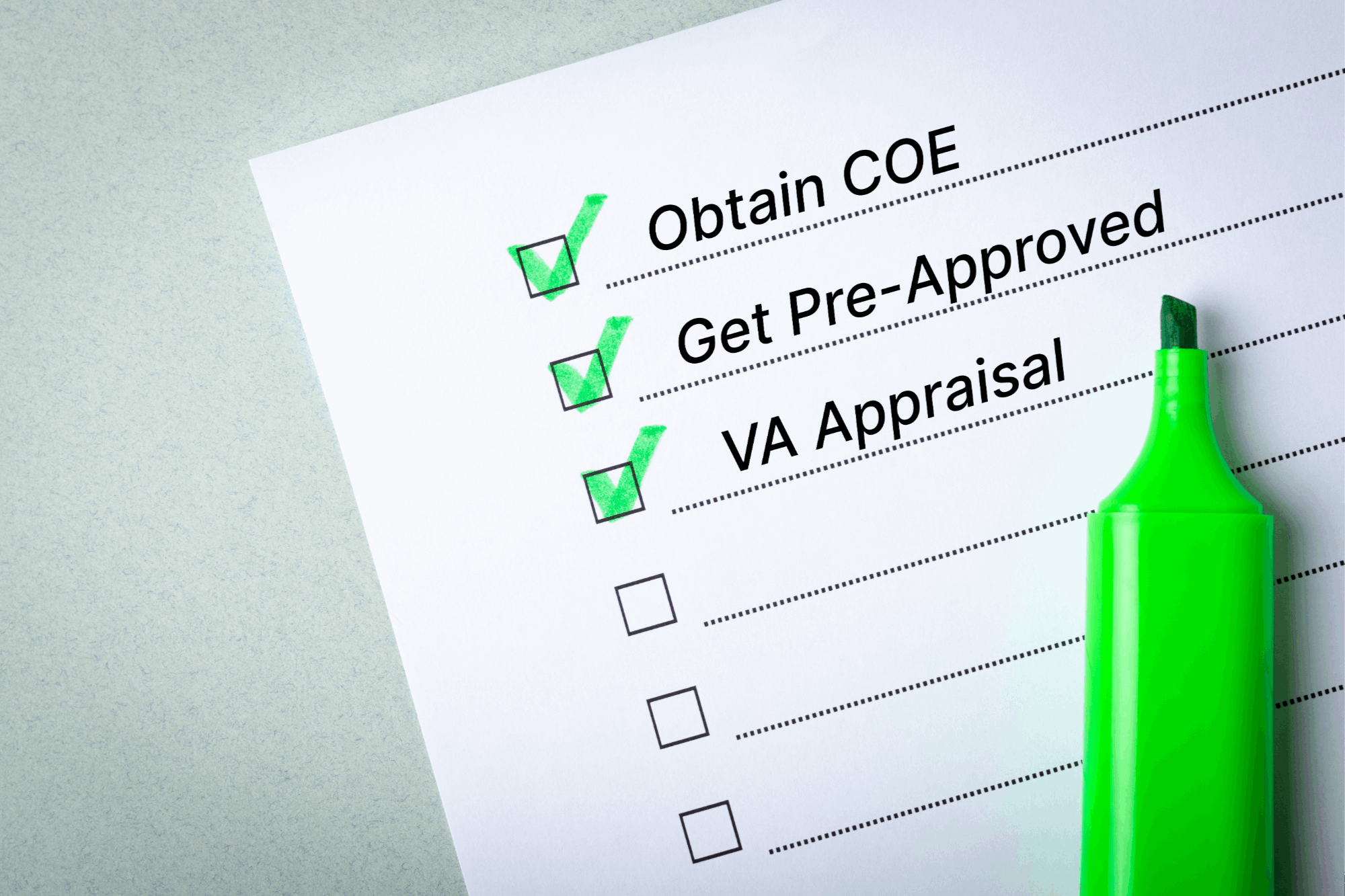The Ultimate Military Homebuying Blueprint—Everything You Need to Know in One Place!

If you're in the military and thinking about buying a home, let's talk. I know you've got a lot on your plate—deployments, PCS orders, training schedules that change constantly. The idea of adding "buy a house" to that list might feel like juggling grenades. But here's the thing: owning a home while serving isn't just possible; it can be a game-changer for your financial future.
I remember chatting with a fellow Army buddy who was knee-deep in paperwork for a home loan while prepping for a PCS. He looked at me and said, "Why didn't anyone tell me how complicated this could get?" That's when it hit me—there's a gap in understanding the unique hurdles military families face when buying a home.
The traditional homebuying advice just doesn't cut it for military families. You've got benefits like the VA loan and BAH, but also challenges like relocating every few years. Understanding these nuances can be the difference between a smart investment and a financial nightmare.
That's why I put together this ultimate guide. We're going to break down everything you need to know. From figuring out your budget (and how your BAH fits in) to leveraging VA loan benefits. We'll dive into choosing the right location, especially when you might get orders to move on short notice. Plus, we'll cover how to navigate the home search process when you're thousands of miles away.
By the end of this guide, you'll have a clear roadmap to confidently buy a home that fits your unique military lifestyle. So let's get started.
Understanding Your Budget
Alright, let’s build the foundation: your budget. It's not the most exciting topic, but this is where a lot of military homebuyers stumble. Ever wondered, “How much home can I actually afford?” You’re not alone. You may qualify for an amount, but that doesn't mean you can afford it. The good news is, with some solid planning, you can go into this homebuying journey informed, not overwhelmed.
Evaluate Your Financial Situation
First things first: take a long, hard look at your finances. One thing that military life brings is stability—your income is predictable, steady paycheck on the 1st and 15th. But, just because BAH helps cover housing costs doesn’t mean you should stretch your budget to the max.
Let's look at a hypothetical. What if you bought a house right at the top of what your BAH could cover. What happens when you come down on PCS orders on short notice. Suddenly, you're stuck trying to rent the place out in a slow market. What's my point? Build some wiggle room into your budget, because life in the military is anything but predictable.
Take into account your total income, any savings you have for a down payment, and your monthly expenses. Don’t forget about the hidden costs of homeownership—maintenance, repairs, and property taxes.
Understanding Upfront Costs
Let’s talk about upfront costs for a minute. One of the perks of the VA loan is the ability to buy with no down payment, which is a huge deal. But that doesn’t mean you’re off the hook for everything. You’ll still need to think about closing costs (which can run anywhere from 2-5% of the home price), inspections, and moving expenses. And if you’re planning on buying a home in a competitive market, you might want to set aside some cash to sweeten your offer, like paying for your own appraisal or covering the seller’s closing costs.
Preparing for Future PCS Moves
Now, let’s get real about the elephant in the room—PCS orders. With few exceptions, you can expect you’ll be moving again in a few years. So when you're buying a home, you’ve got to think ahead. Is this a place you can sell quickly if you get orders to move again? Or, can it be a rental property that brings in enough to cover the mortgage?
The first home my wife bought was at Fort Gordon (now Fort Eisenhower). Knowing she’d likely get orders elsewhere in a few years, she chose a neighborhood within 5 minutes of the base. And when the time came to move, she hired a property manager and there was a tenant moved in within two weeks. We kept renting the house for a few years before selling it, making enough to cover the mortgage and then some. When we did sell, we had an offer within 48 hours. That’s the kind of smart, future-focused thinking that can set you up for long-term success.
So, to sum it up: build your budget with flexibility. Understand what upfront costs you’ll need to cover and always keep the possibility of a future PCS move in mind. Your goal is to buy a home that works for you now and in the future—whether that means selling or renting it out down the road.
Leveraging Military-Specific Financing Options
Here’s where things get exciting—financing. I know, I know, “exciting” and “financing” don’t normally go together, but hear me out. As a military service member, you have access to some serious perks when it comes to home loans, and if you use them wisely, they can save you a ton of money.
VA Loan Benefits
Let’s kick things off with the big one: the VA loan. If you’re eligible and not taking advantage of this, you’re leaving money on the table. I’m talking no down payment, no private mortgage insurance (PMI), and some of the most competitive interest rates out there. You won’t find these kinds of terms with a conventional loan, period.
I once helped a fellow Soldier who was on the fence about using the VA loan. He thought it might be more complicated and less flexible than a conventional loan. After we broke down the numbers, he quickly realized how much he’d save by going the VA route. He saved thousands of dollars in upfront costs and even more over the life of the loan.
The fact that you don’t need a down payment is huge. This allows you to hold onto your cash for other things—maybe an emergency fund to cover unexpected costs or even some improvements to the home after you buy it. Plus, no PMI means you’re not throwing extra money away every month.
Eligibility Requirements
Now, let’s talk about who qualifies for a VA loan and how to get started. If you’re an active-duty service member, veteran, or surviving spouse, chances are you’re eligible. The length of your service and discharge status will factor into it, but for most folks who have put in at least 90 days of active service, you’re good to go.
Here’s the deal though—you’ll want to get pre-approved before you start house hunting. It’s simple: you get your Certificate of Eligibility (COE) from the VA, then go through the pre-approval process with a lender who offers VA loans.
Trust me, having that pre-approval in hand not only strengthens your offers when you’re ready to make one, but it also helps you understand exactly what you can afford. DO NOT skip this step.
Other Financial Assistance
The VA loan isn’t the only benefit available to you. Depending on where you’re looking to buy, you might also qualify for state-specific programs that offer financial help to military families and veterans. Some states have first-time homebuyer programs that work with the VA loan, offering grants or low-interest loans to help with things like closing costs or home repairs.
For example, here in Georgia, we have a great program for veterans that helps cover closing costs. Many states offer similar benefits. It’s worth doing a little homework to see what’s available in your area because you could end up with thousands in extra assistance. And don’t forget to ask your real estate agent about these programs and about other military discounts.
We’ll talk more about the process later, but the VA loan is an incredible resource that can make homeownership a reality for military families without the financial strain that comes with traditional loans. Take the time to understand the benefits, get pre-approved, and explore any extra assistance programs out there. With the right financing in place, you’ll be well on your way to owning a home that fits your budget and your lifestyle.
Researching and Choosing the Right Location

Now that you’ve got a handle on your budget and you're pre-approved, it’s time to talk location. This is a big one. The house might be perfect, but if you’re living two hours from base, stuck in traffic every day, or in a neighborhood that doesn’t feel right, that dream home can quickly turn into a nightmare. Let’s walk through some of the key factors military families should keep in mind when choosing where to plant roots.
Consider Proximity to Base
Convenience is king, especially when your schedule can change at a moment’s notice. Whether it’s early morning PT or late-night duty, living close to base can be a lifesaver. My platoon leader when I was stationed at Fort Hood bought a beautiful home an hour away because it was a steal. But after a year of grueling commutes, he struggled with the long hours of work AND the long commute. Sometimes saving a little upfront isn’t worth the daily grind of long drives and traffic headaches.
That said, don’t feel like you need to live in base housing or right next to it. Just make sure you factor in travel time, traffic patterns, and how often you’ll need to be on base. If you’re working irregular hours or deploying, being nearby can make life a whole lot easier.
School Districts
If you’ve got kids, finding a good school district is likely at the top of your list. Military families often have to change schools with each move, so choosing a home in a solid school district can provide some much-needed stability for your kids. Even if you don’t have children yet, buying in a good school district can increase the resale or rental value of your home later.
Here’s a tip: Websites like GreatSchools.org or SchoolDigger.com can give you a sense of how different schools rank in terms of academics, extracurriculars, and overall satisfaction. But don’t just rely on the numbers. Reach out to other military families in the area and get their take on schools—they’ll give you the real deal on what it’s like for military kids.
Community Amenities
When you’re scoping out neighborhoods, think beyond the house itself. What kind of community amenities do you need? Military life is unique in that you often rely on services like military family support centers, healthcare, and childcare. You don’t want to be in a situation where you’re constantly driving far out of your way to access these essential services.
Also, think about the lifestyle you want. Do you need nearby parks for your kids or dogs? How about access to grocery stores, gyms, or restaurants? For instance, our last home was in a perfect location close to the base, but not too close. Only problem was we were miles away from basic conveniences we regularly used. We would spend 20 minutes to get to the hardware store for routine projects, sometimes several times per week. It’s all about balance—make sure the area has what you need to live comfortably, especially during busy PCS seasons or deployments.
Market Trends
Lastly, consider the local real estate market. Military life is unpredictable, and you might not stay in one place as long as you’d like. That means you should think about how easy it will be to sell or rent out your home when the next set of orders comes through.
Check out how home prices have been trending in the area. Are they stable? Going up? If home values are rising, that’s great news—you could make a nice profit when it’s time to sell. If the market is flat or declining, you might want to think twice before locking in.
Our last home, for instance, was in an up-and-coming neighborhood. The market was hot, and in less than 2 years, when we moved, we sold their home at nearly a 30% profit. Long-term thinking can be the difference between a financial win and a stressful scramble.
In summary, when choosing the right location, consider how close you need to be to base, the quality of local schools, the amenities that matter to you, and the long-term potential of the housing market. The right location will make all the difference—not just while you live there, but for your future resale or rental prospects.
Navigating the Home Search Process
Now that you’ve nailed down your budget, financing, and location, let’s dive into the actual home search. This is the fun part—scrolling through listings, picturing your new life in each home, and maybe even falling in love with a few places. But if you’re a military family, especially dealing with PCS orders or being stationed far from your next home, there are a few unique things to keep in mind.
Finding a Military-Friendly Real Estate Agent
First things first, you need an agent who gets it. An agent who’s been in your shoes understands the ins and outs of PCS moves and the specific needs of military buyers, not to mention the VA loan process. A military-friendly agent will know how to work within tight timelines, can help you navigate VA loan requirements, and might even have connections to other military families who’ve been in your shoes.
Some REALTORS® undergo specialized training to become Military Relocation Professionals (MRP). MRPs understand a military family's unique situation and have the knowledge to make the most of every transaction, selling or buying. They can help you navigating your benefits, working with the VA, and finding you a home that fits your needs and timeline.
Virtual Tours and Long-Distance Home Buying
If you’re PCSing, you’re likely in no position to see all these homes in person. Virtual tours have become a game-changer for military families who can’t physically be there to walk through homes. Some homes offer 3D tours, but even those have some gaps. I prefer to virtually walk my clients through a home. That way I can answer questions along the way, or show them specific features more closely. Sometimes, based on schedules and availability of showings, a video walk-through may be the better option. This is a great option for families stationed overseas with a major difference in timezones.
If virtual tours are the way you choose to go, just make sure you ask all the questions you’d normally ask if you were there in person. How’s the neighborhood? What’s the condition of the roof? Any major repairs needed? Ask questions about the quality of matierals, ambient sounds, things you would otherwise feel or hear in person. Sometimes, having a trusted friend or family member walk through the home on your behalf can give you an extra layer of confidence.
Negotiating with Military-Specific Needs
Here’s something you might not hear often: as a military buyer, you have some leverage when negotiating, especially if your BAH or PCS timeline comes into play. For example, sellers may be more willing to accommodate a fast closing if they know you’re on a tight timeline to move in. And if your BAH doesn’t quite cover what you need, you might be able to negotiate for the seller to cover closing costs or throw in additional concessions like home repairs or appliances.
I knew a service member who was looking to buy a home quickly due to PCS orders. He were able to negotiate a closing date that lined up perfectly with his move, and the seller covered the inspection costs to sweeten the deal. Sellers know military families often have limited time, so don’t be afraid to ask for terms that fit your needs.
Another tip? Use your military status to your advantage. Many service providers offer military discounts on things like home inspections, pest control, and moving services. It never hurts to ask!
Preparing for BAH Adjustments
BAH rates fluctuate depending on where you’re stationed. While your current BAH might comfortably cover your mortgage, a future PCS could mean a lower BAH, especially if you're moving to a less expensive area. When you're shopping for homes, aim for one that leaves you some breathing room, so you’re not scrambling to cover the mortgage as much while paying for housing at your next duty station.
To sum up, navigating the home search process as a military family hinges on finding the right agent. That agent should take you on virtual tours and can negotiate on your behalf. Consider your BAH, your PCS timeline, and flexibility for the future. With all that, you’ll be well on your way to finding the perfect home—even if you’re miles away from your future front door.
Understanding the VA Home Loan Process
Now that you’ve got your eye on some homes and are ready to dive into the buying process, it’s time to talk about the VA home loan. If you’re a military family, the VA loan is the golden ticket for financing your home. But like anything involving the government, there are steps to follow, paperwork to file, and boxes to check. Don’t worry—we’ll walk through the entire process so you’re ready to go.

Getting Pre-Approved
As we discussed, before you even start making offers, you’ll want to get pre-approved for your VA loan. This step is crucial. Pre-approval shows sellers you’re serious and have the backing to close the deal. Plus, it gives you a clear idea of your buying power—how much house you can afford and what your monthly payments will look like.
Here’s how it works. First, you’ll need to obtain your Certificate of Eligibility (COE) from the VA. This document proves to lenders that you qualify for the VA loan based on your service history. You can apply for your COE online through the VA, ask your lender to do it for you, or even mail in a request. Once you’ve got that in hand, you can move on to the pre-approval process with a VA-approved lender.
Getting pre-approved involves providing basic information about your income, credit history, and employment. Once the lender has all the details, they’ll let you know how much you’re approved to borrow. From there, you’ll get a pre-approval letter, which you can use when you’re ready to make an offer on a home.
I helped a fellow Soldier through this process once, and he was shocked at how quickly it all moved. We got his COE and pre-approval in just a couple of days, and he was able to confidently put in an offer knowing exactly what he could afford. The key is getting this done early—before you fall in love with a house that’s out of your budget!
Inspections and Appraisals
Once you’ve found a home and had your offer accepted, it’s time for inspections and appraisals. With a VA loan, the property must meet specific standards to ensure it’s safe, sound, and sanitary. This is where the VA appraisal comes in. The appraiser will check the property’s value and condition to make sure it meets the VA’s Minimum Property Requirements (MPRs). Things like a damaged roof or faulty wiring can be deal-breakers for the VA loan, so it’s essential to address these issues upfront.
If a VA appraisal comes back with issues that cause the property to fail, it can be frustrating. Don’t give up just yet, though. There are several ways to overcome it. It’s important to understand why the property didn’t meet the VA’s Minimum Property Requirements (MPRs). These issues are often related to safety, livability, or the general condition of the home. This article gets deeper into your options if you encounter a failed VA appraisal.
In addition to the VA appraisal, it’s a good idea to get a standard home inspection. This isn’t required by the VA, but it’s your opportunity to uncover any hidden problems. The last thing you want is to move into a home and discover a costly issue that could’ve been avoided with a proper inspection.
Closing on the Home
Ah, the final stretch—closing day. Closing on a home can be a whirlwind of paperwork, but it’s the moment when everything becomes real. With a VA loan, closing usually looks a little different than with a conventional loan. For starters, you won’t have to bring a hefty down payment to the table, and there’s no PMI to worry about, which can significantly reduce your closing costs.
However, there are still fees involved. You’ll need to pay a VA funding fee, which is a one-time payment to the VA that helps keep the loan program running. The good news is, this fee can be rolled into the loan amount, so you won’t have to pay it upfront. And if you have a service-related disability, you might be exempt from paying this fee altogether.
Now, if you’re buying during a PCS or from out of state, closing can feel a bit tricky. Fortunately, you can often close remotely or give someone power of attorney to sign documents on your behalf.
Overall, the VA loan process can seem like a lot to navigate, but with the right preparation, it’s pretty straightforward. Get pre-approved early, ensure the home meets VA standards with proper inspections and appraisals, and be ready for the final steps of closing. It’s a powerful tool that can make homeownership not only possible but financially smart for military families.
Preparing for Your Permanent Change of Station (PCS) Move
Moving on its own is stressful. Now, throw in military orders, tight deadlines, and a full household of belongings, and you’ve got a PCS move on your hands. It’s one of the most challenging parts of military life, but if you plan ahead and strategize, it can be a lot smoother than you think. Here’s some tips on how to time your home purchase, manage the move, and prepare for future relocations.
Timing Your Purchase
One of the biggest questions military families face is when to buy a home during a PCS. Should you buy before you move, after you arrive, or rent first and buy later? The answer depends on your specific situation, but here are a few things to consider:
If you get your orders well in advance and you’re confident about your next duty station, it might make sense to start your home search early. Aim to close around the time you report. This way, you’re moving straight into your new home, saving the hassle of temporary housing or short-term rentals.
On the other hand, if things are moving fast or you’re unfamiliar with the area, it might be wise to wait until you arrive. Renting for a few months can give you time to get a feel for the neighborhoods and market trends. Remember, rushing into a home purchase just because you’re on a deadline can lead to buyer’s remorse down the road.
Managing the Move
The physical part of the PCS move can be the most daunting—packing up your life and shipping it to a new location is no small feat. The military offers two main options: the government-move, where they handle everything, or the personally procured move (PPM), formerly known as a DITY (Do-It-Yourself) move, where you take charge of the logistics.

If you opt for a government move, the military will assign movers to pack, load, and transport your belongings. This is the hands-off option, but you still want to be proactive. Schedule your move early, so you aren’t stuck with dates after your plan to depart. Also, make sure you document the condition of your items before the movers arrive, just in case anything gets damaged in transit. Trust me, the last thing you want is to unpack broken furniture without proof for your claim.
On the other hand, if you prefer to have more control, the PPM is a great option. You’re responsible for renting a truck, packing, and moving everything yourself, but the military reimburses you up to 100% of what it would’ve cost for a government move. If you plan it right, you can actually make money from a PPM.
I’ve done PPM moves several times, and while it can be a lot of work, we came out ahead financially each time. Plus, we had the peace of mind of knowing that everything was packed the way we wanted and transported carefully. Just be sure to weigh the pros and cons of both methods before deciding which route to take.
Selling or Renting Out Your Home for Future PCS Moves
Here’s the reality of military life: you’re going to move again. So when you buy a home during a PCS, it’s smart to think ahead to the next move, even if it’s a few years down the road. There are two main options when the time comes: selling the home or renting it out.
If the housing market is hot and home values have appreciated, selling can be a smart financial move. You might walk away with a nice profit that can help with your next home purchase or other expenses. But keep in mind that selling comes with its own costs—real estate commissions, repairs, and closing fees can eat into your profit.
Alternatively, renting out your home could be a great way to build long-term wealth. While you’re stationed elsewhere, renting it out can cover the mortgage and potentially even provide extra income. This makes even more sense if you're likely to return to this duty station in the future. Just be sure to research the rental market in your area to ensure that demand is high enough to make this a viable option.
I’ve seen plenty of military families successfully rent out their homes for years. They build equity and turn PCS moves into a way to grow their real estate portfolio. But it’s important to understand that being a landlord comes with responsibilities. Property management, tenant issues, and maintenance are tough to deal with from out of state. If you’re not up for the challenge, hiring a property manager could make your life a lot easier.
If you’re a dual military family, renting may be an optimal option. Each service member has a VA loan entitlement. So, you can purchase another home with the unused entitlement while you keep your last home as an investment.
Planning for your PCS move means timing your purchase carefully. Choose the right moving strategy for you, and think ahead about what you’ll do with your home in the future. Whether you decide to sell or rent, always consider the long-term implications of each move.
What’s Next?
Now that you’ve got a solid understanding of the homebuying process, the next step is to take action. Start by assessing your budget, researching financing options like the VA loan, and connecting with a military-friendly real estate agent who understands your unique needs. If you’re approaching a PCS move, plan your timeline carefully and prepare for the logistics of relocating. Most importantly, don’t hesitate to reach out for personalized guidance.
The Real Military Division has a team of outstanding agents focused on and experienced in working with military families. Best part is we've got agents across the nation, so you'll have local expertise no matter where you go. Whether it’s getting pre-approved for a loan, navigating the housing market, or preparing for your next PCS, you don’t have to do it alone. Take advantage of the resources available, and if you’re ready, schedule a consultation to help you confidently take the first steps toward homeownership.
Categories
Recent Posts
"My mission is to expertly guide military families through the homebuying process, to take the stress out of your PCS, and to get you the home you've always dreamed of! "






